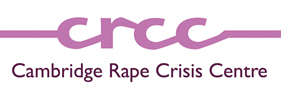About Us
The Cambridge and Peterborough Rape Crisis Partnership (CAPRCP) comprises two independent dedicated specialist sexual violence organisations, Cambridge Rape Crisis Centre (CRCC) and Peterborough Rape Crisis Care Group (PRCCG). The partnership has over 60 years’ combined experience in the design and delivery of specialist support services to survivors of rape and sexual abuse, regardless of when the abuse happened.
Our core purpose is to alleviate the psychological and emotional trauma that affects survivors of sexual violence and assist them to overcome both the short and long-term effects of sexual violence whilst they work to regain control of their lives and make positive decisions about their future.
Cambridge Rape Crisis Centre was set up as a confidential helpline in 1982 by a small group of local women.
It was a response to a growing awareness of sexual violence against women and girls, and the need to provide a safe space. This gave many women their first chance to talk openly about their experiences of rape, sexual assault, childhood sexual abuse and other forms of violence. It also meant they could support each other in their recovery and healing.
Today, more than 40 years later, we have expanded to become a specialist sexual violence organisation delivering a range of support services every year to more than a thousand women and girls across Cambridgeshire who are survivors of rape, sexual abuse and sexual violence.
Peterborough Rape Crisis Care Group was established in 1983 in response to a need amongst women for a safe, confidential, non-judgemental support service.
The sexual violence may have occurred recently or many years in the past and could have involved a stranger, relative or someone known to you. All our volunteers come from a wide variety of backgrounds and all have been trained to help women survivors who have suffered any form of sexual abuse.
Peterborough Rape Crisis Care Group is committed to supporting and empowering female survivors of rape and sexual abuse, regardless of race, ethnicity, sexuality, age and other discriminatory factors respecting individual lifestyles through the provision of a confidential telephone help line, a face to face support service and other appropriate support mechanisms.

